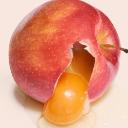Yahoo Answers is shutting down on May 4th, 2021 (Eastern Time) and beginning April 20th, 2021 (Eastern Time) the Yahoo Answers website will be in read-only mode. There will be no changes to other Yahoo properties or services, or your Yahoo account. You can find more information about the Yahoo Answers shutdown and how to download your data on this help page.
Trending News
81 Answers
- JeancommunicatesLv 73 years ago
Yes, the bible is scientifically and every other way accurate. God is never wrong and His Word does not return to him void. To question the Bible to me is pure ignorance on the part of the one questioning it.
- USAFisnumber1Lv 73 years ago
No. In one part they discuss making a big font to be filled with water. They give it as having a diameter to circumference of 1 to 3. That would have meant Pi was 3. There is a story that one state legislature guy about 80 years ago tried to legislate that Pi was 3 because the Bible said so.
- Anonymous3 years ago
It's Ancient Near East literature, not scientific at all.
- humptyLv 73 years ago
Is the value of pi exactly three? Does the Sun revolve around the Earth? If the answer for those questions is "Yes!" then the Bible is scientifically accurate.
- How do you think about the answers? You can sign in to vote the answer.
- Ernest SLv 73 years ago
The Bible shows itself as God's word.
Proper examination proves it impossible to be the work of man.
You put the cart before the horse. You cannot judge the Bible by science since science is deficient, understanding of science is incomplete, and subject to changes and the things recorded in the Bible cannot be measured or observed.
- The First DragonLv 73 years ago
When it is talking about things that the people of that time observed in nature, it seems very accurate. For instance, the Bible says that the rock hyrax is an animal that chews the cud. [Leviticus 11: 5] It was long believed that the Bible was wrong about this, but recently it was discovered that they do, but only for short periods every day. It makes sense that people who lived in the wilderness as nomads might have found this out, while people in towns and colleges would not know it.
Then there is the "value of pi." In 1 Kings 7: 23, it is reported that Hiram built a pool that was circular, 10 cubits across and 20 cubits around. This makes, by our modern measurements, pi equal to 3. However, the cubit is simply the distance between the worker's elbow and fingertips; it is not precise enough to give a value more accurate than this. The observation was correct with the tools that they had at the time. Calling this mathematically inaccurate is an anachronism.
But I suppose you are talking about the creation accounts in Genesis. Yes, there are two creation accounts, and they are different from each other. I don't think they were ever intended to be purely descriptive like the descriptions in Leviticus, for instance. They were for moral and spiritual wisdom, not science.
There are clearly different kinds of writing in the Bible. There are accounts of history, some of them with all the earmarks of an eyewitness account; others sounding more as if they were passed down. There are legal systems, there is poetry, and symbolic writings.
It does not respect the Bible if you try to make it what it doesn't claim to be. It doesn't claim to be science. Look for the evidence within the text, to see whether it is telling history, or poetry, or law, or something else. That is how you respect any historical text.
- EsteLv 73 years ago
Did you know that long time ago rye bread used to make people high and sometimes caused deaths? I think the people who wrote this book were on rye bread.
But seriously, people in old time didn't know any better. That book can be interpreted in unlimited ways and offers no correct answer. People reads it, understands in the way they wants to and that's called confirmation bias.
- laidawestbrook2Lv 63 years ago
Although the Bible is not a science book it is scientifically accurate. The Bible is scientifically accurate. It even contains information that was far ahead of its time. For example, the book of Leviticus contained laws for ancient Israel on quarantine and hygiene when surrounding nations knew nothing about such matters. At a time when there were wrong ideas about the shape of the earth, the Bible referred to it as a circle, or sphere. (Isaiah 40:22) The Bible accurately said that the earth is suspended “upon nothing.” (Job 26:7) Of course, the Bible is not a science textbook. But when it touches on scientific matters, it is accurate. Is this not what we would expect of a book from God.
The Bible is also historically accurate and reliable. Its accounts are specific. They include not only the names but also the ancestry of individuals.* In contrast to secular historians, who often do not mention the defeats of their own people, Bible writers were honest, even recording their own failings and those of their nation. In the Bible book of Numbers, for instance, the writer Moses admits his own serious error for which he was severely reproved. (Numbers 20:2-12) Such honesty is rare in other historical accounts but is found in the Bible because it is a book from God.
- PyriformLv 73 years ago
No, it is not scientific at all. The Bible is not a science book, and was written over a thousand years before the scientific method.









